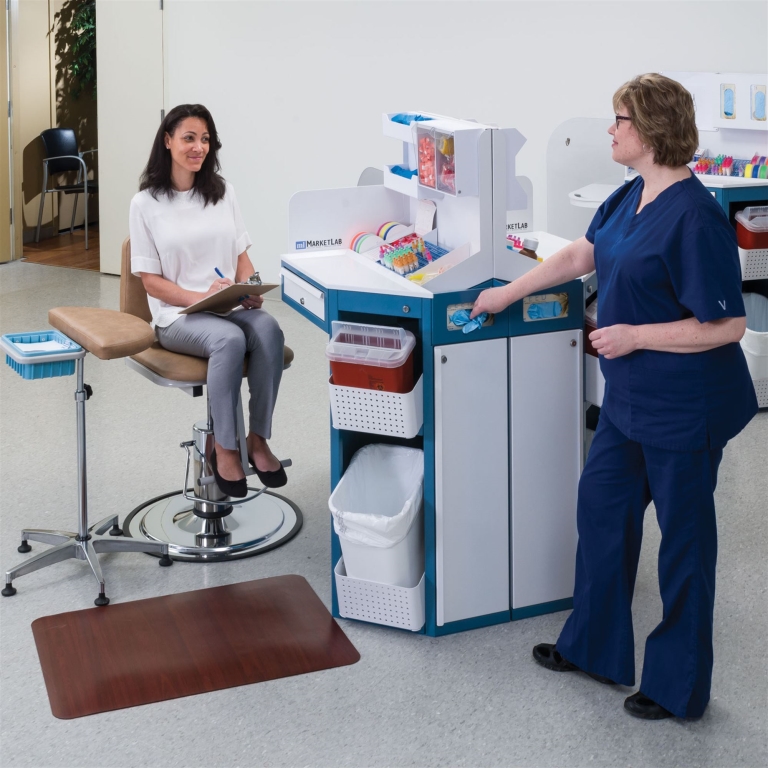Unlock Your Future: The Essential Guide to Earning a Phlebotomy Associates Degree
If you’re looking to forge a fulfilling career in healthcare, earning a Phlebotomy Associates degree can be the key to unlocking numerous opportunities. This guide will walk you through everything you need to know about pursuing this essential credential, including the benefits, coursework, job opportunities, and practical tips to thrive in this exciting field.
Understanding Phlebotomy
Phlebotomy, the practice of drawing blood for medical testing, is a crucial component of patient care. Certified phlebotomists are in high demand across various settings, including hospitals, clinics, and laboratories. Their skilled hands ensure accurate diagnoses and effective treatments.
What is a Phlebotomy Associates Degree?
A phlebotomy Associates Degree is typically a two-year program that provides in-depth training in blood collection techniques, anatomy, and patient care. The degree often includes clinical training, were students gain hands-on experience working with patients. Courses may cover the following:
- Human Anatomy and Physiology
- Medical terminology
- Phlebotomy Techniques
- Laboratory Procedures
- Patient Communication Skills
Benefits of Earning a Phlebotomy associates Degree
There are numerous benefits associated with obtaining a Phlebotomy Associates Degree, including:
- High Demand: The growing healthcare sector continues to increase the need for skilled phlebotomists.
- competitive Salary: Phlebotomists earn an attractive salary, which can grow with experience and additional certifications.
- Career Advancement: An associates degree can open doors to higher positions, such as laboratory technician or even nursing programs.
- Hands-On Learning: Combining classroom instruction with clinical experience prepares students for real-world challenges.
How to Obtain Your Phlebotomy Associates Degree
Securing your Phlebotomy Associates Degree involves several key steps:
Step 1: Research Programs
Begin by researching accredited institutions that offer Phlebotomy programs. Look for schools with strong reputations, extensive curricula, and flexible scheduling options to fit your lifestyle.
Step 2: Meet Admission Requirements
Each program may have different admission criteria, which typically include:
- High school diploma or equivalent
- Minimum GPA requirements
- Basic knowledge of biology and health sciences
Step 3: Enroll and Complete Coursework
Once you are accepted, enroll in classes and focus on completing your coursework. Don’t hesitate to ask questions and seek help from instructors to thoroughly grasp the material.
Step 4: Gain Clinical Experience
Most programs require clinical practice to ensure you are well-prepared. Take advantage of this opportunity to refine your skills and build confidence.
Step 5: Obtain Certification
After successfully completing your degree, you may choose to obtain certification from recognized organizations such as the American Society for Clinical Pathology (ASCP) or the National healthcareer Association (NHA). While certification isn’t always mandatory, it considerably enhances job prospects.
Job Opportunities and Career Outlook
with a Phlebotomy Associates Degree, you can pursue various roles in healthcare. These positions offer a stable career path and room for advancement:
| Job Title | Average Salary (Annual) | Job Growth (2019-2029) |
|---|---|---|
| Phlebotomist | $36,000 | 23% |
| Laboratory Technician | $53,000 | 11% |
| Clinical Laboratory Technologist | $62,000 | 11% |
Personal Experiences in Phlebotomy
Many students and professionals share their journey into phlebotomy as a rewarding experience. As a notable example, a recent graduate, Sarah, recounts:
“the hands-on training was invaluable! I felt nervous initially, but my instructors really cared and helped me build my confidence in drawing blood. Now, I work in a local hospital and love every minute of it!”
Practical Tips for aspiring phlebotomists
To excel in your phlebotomy career, consider the following practical tips:
- Stay updated on best practices and innovations in blood collection.
- Develop strong communication skills to put patients at ease.
- Network and connect with professionals in the field for support and opportunities.
- Consider pursuing further education to enhance your career prospects.
Conclusion
Embarking on the journey to earn a Phlebotomy Associates Degree can significantly impact your future. Not only does it prepare you for a rewarding career in healthcare,but it also provides you with the necessary skills to positively impact patients’ lives. By following the outlined steps and leveraging the benefits discussed,you can unlock your potential and step confidently into the world of phlebotomy.
Are you ready to take the first step toward your future? Explore programs near you and get started on your path to becoming a skilled phlebotomist today!
